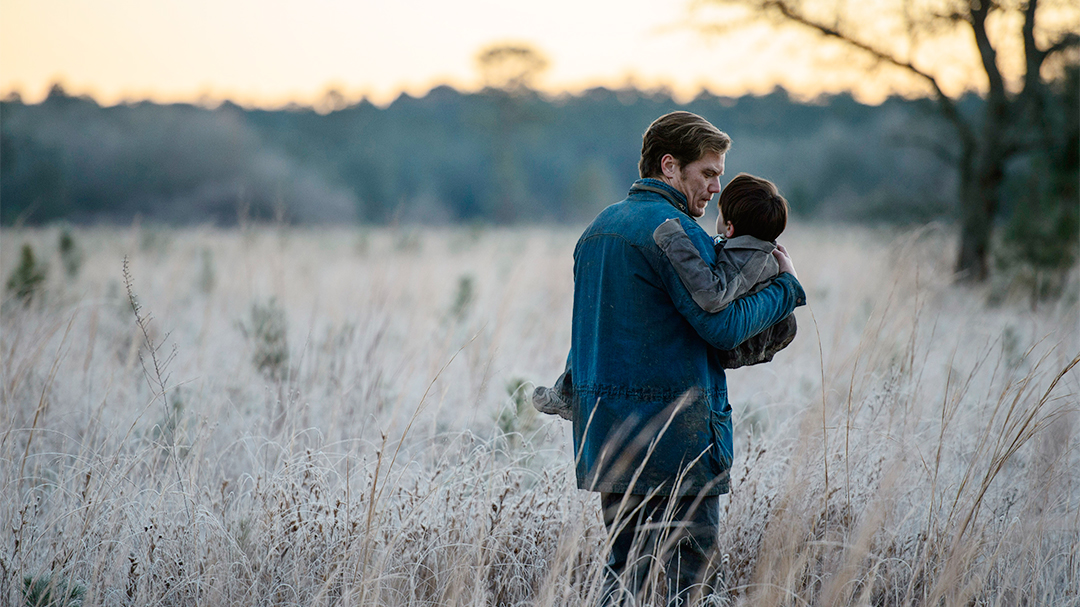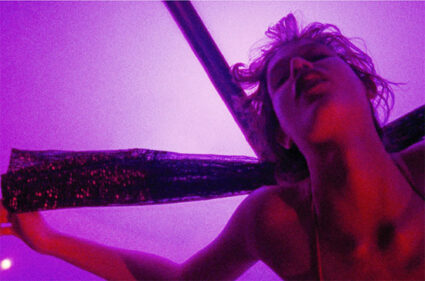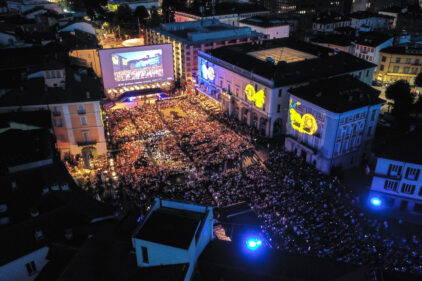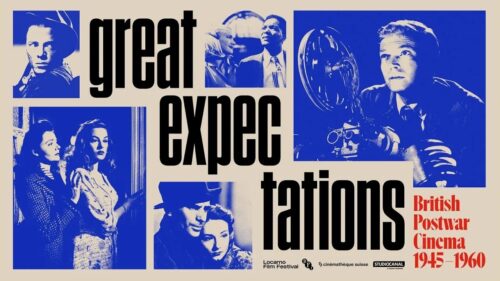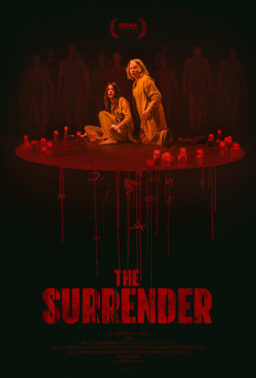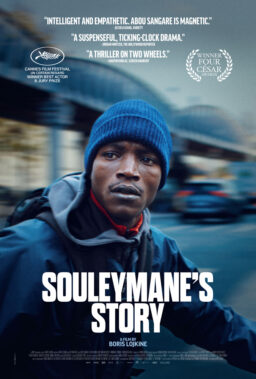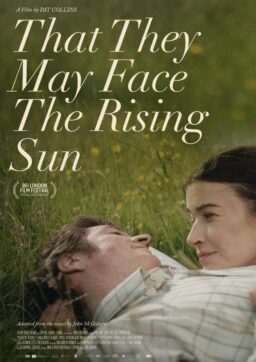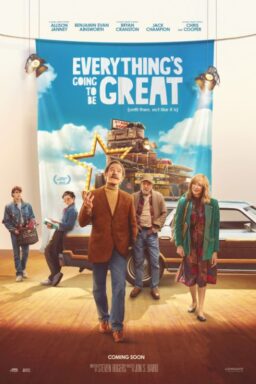There is faith, and there are facts. Fact: with his sci-fi chase/road-movie
“Midnight Special,” Jeff Nichols becomes only the fifth American director to
have competed at both Cannes and Berlin during the current decade. The Arkansan
may not yet have the renown of Terrence Malick, Gus Van Sant, Steven Soderbergh
or Wes Anderson, but time is very much on the side of the 37-year-old, whose
fourth feature is by some way his most commercial to date. Much too
“commercial,” indeed, to snare the Berlinale’s Golden Bear—but the
prospect of Nichols following recent Best Director laureates Paul Thomas
Anderson, David Gordon Green and Richard Linklater requires little suspension
of disbelief.
Linklater is from Texas; Green grew up there but was born across the Arkansas
state line in Little Rock—hometown of the softly-spoken Nichols, who has, like
them, quietly built his career in a methodical, old-fashioned way. He’s
accumulated fans and critical plaudits with each of the films he’s written and
directed to date—“Shotgun Stories” (2007), “Take Shelter” (2011), “Mud” (2012)—each
of them calling upon the formidable presence of Nichols’ towering thespian
totem Michael Shannon; each of them set in the American south and paying close
attention to the area’s natural landscapes; each of them dealing with
masculinity in the context of father-son relationships of biological and non-biological
types. This is already a distinctive body of work, assembled with craftsmanlike
care in tandem with an artistic—and explicitly cinematic—sensibility.
His (reported) budgets have steadily increased along the way: $250,000 to
$3m to $10m for 2012’s Cannes competitor “Mud” (unheralded pre-dawn of the
McConnaissance) to $18m for “Midnight Special.” While much more than all of
Nichols’ series of working-class protagonists will ever earn in their lifetimes
combined, that’s a startlingly tiny sum for a picture whose special effects stand
comparison to all but the most opulently extravagant of 21st century Hollywood
blockbusters, and whose high-toned supporting cast includes Adam Driver (red
hot after “Star Wars: Episode VII – The Force Awakens”), Joel Edgerton and
Kirsten Dunst.

It’s also $6m less than John Carpenter spent over three decades ago on “Starman”—the
picture which Nichols freely cites as the template for his “Midnight Special”
screenplay, just as he was articulately frank about the Mark Twain influences
on “Mud.” And while admirers of serious-minded, adult-oriented, intelligent genre
film-making will have their fingers crossed for “Midnight Special” when it
opens across the USA mid-March, it’s only an “original” story in the
current context of a cinematic culture so grotesquely dominated by remakes,
sequels and comic-book adaptations.
The familiarity of so much of “Midnight Special”—which revolves around the
supernatural powers of unearthly child Alton (Jaeden Lieberher) and his frantic
transportation across the south by his father Roy (Shannon) and the latter’s
pal Lucas (Joel Edgerton) for a mysterious rendezvous—cuts both ways. Nichols
knows that we’ve all seen “E.T.,” that most of us have seen “Close Encounters,”
that many of us know “Starman,” and can coast along on references and homages
and Spielbergian/Carpenteresque moods, blithe blendings of X-Men (white rays
sometimes shoot from Alton’s eyes, Cyclops-style) and X-Files for well over an
hour.
The early and middle stages are superbly handled: tense, atmospheric, exciting,
punctuated with rousingly effective set-pieces and leavened with dry humor.
When push comes to shove, however, and Nichols has to come up with a third act
to stand comparison with his illustrious role-models, he falls far short. The
big final-reel reveal—after so much anticipation and skillful manipulation of
expectations—is a letdown, leaving too many questions unanswered and undermining
what should be the kind of knockout emotional climax which “Starman” so
gloriously delivered. Bathos trumps pathos.
Indeed, the actual climax comes just before the one-hour point, when Alton—up
until this point drastically allergic to sunlight—demands, with the indomitable
precocity that’s his trademark—to experience the dawn. As Roy stands in a field,
with the boy in his arms, peering with great anguish at the eastern horizon
behind a line of trees, the suspense is no less unbearable for the fact that we
know that what we’re about to see is the most quotidian thing in the world: as
The Beloved sang in 1990, it’s just the sun rising. But as the rays hit
individual blades of grass, accompanied by David Wingo’s surging score and
captured by Adam Stone’s widescreen cinematography, the effect is near-overwhelming.

It is a basic structural defect in the screenplay that nothing in the remaining
50 minutes reaches this kind of peak. Not for the first time, it’s Nichols the
scriptwriter that lets Nichols the director down. The earlier films often
played fast and loose with plausibility at crucial stages, and in “Midnight
Special” the finale hinges on a silly bit of business involving access through
country roads supposedly sealed off by the military.
Ah, but what about suspension of disbelief? There are many who have sufficient
faith in Nichols to forgive or overlook such minor lapses, and the power of
such faith is the recurring theme of “Midnight Special.” The title is borrowed
from a folk-song popular in American jails, relating to a superstition that
prisoners who felt the lights of the eponymous passing train on their faces
would soon be released, would gain liberation and thus salvation. Harry Dean
Stanton sings it in Stuart Rosenberg’s “Cool Hand Luke” (1967), and here it’s
performed over the end credits by the Tennessee country-punk five/piece Lucero—guitar
and vocals by Jeff Nichols’ brother Ben.
Roy, formerly a member of an extremist religious sect called The Ranch—leader
‘Brother Calvin’ is played by Sam Shepard, imposing in his brace of scenes—is a
“believer” from beginning to end, his faith in his son’s powers
(perhaps alien, perhaps messianic) never once wavering. Rather like the
storm-fearing dad he played in “Take Shelter,” he “believes in something” that
others don’t, and he believes in it with titanic certainty.
And while many road-miles are covered in a picture which has no trains but
plenty of planes and automobiles, the real journey is internal—and it’s
performed by Lucas, a law-enforcement officer who is explicitly presented as a
man of reason, an individual who trusts only the evidence of his own eyes. In a
film cleverly marbled with religious allusions, the character’s name is derived
from St Luke, that most scientific of evangelists (“Alton,” meanwhile, is
presumably a nod to noir maestro John Alton, patron saint of cinematographers).
What happens to father and son at dawn in that field, however, is enough to
shatter his skepticism—his embrace of faith is “Midnight Special”’s true
turning-point. Whether we’re given enough material to swallow this
“conversion” is another matter—Lucas isn’t there to see it, he is
simply told about it second-hand. Edgerton, in the film’s most nuanced and
engaging performance, certainly does his best to make us believe. Stocky,
buzz-cut Lucas, with his tough little face and empathetic, pale eyes, is the
real heart and soul of “Midnight Special,” decked out in blue-collar duds that
feather the cap of costume-designer Erin Benach. Lovely touch: tucked in the
left back-pocket of his jeans, a pair of well-worn workmen’s gloves. And they
never come out.
